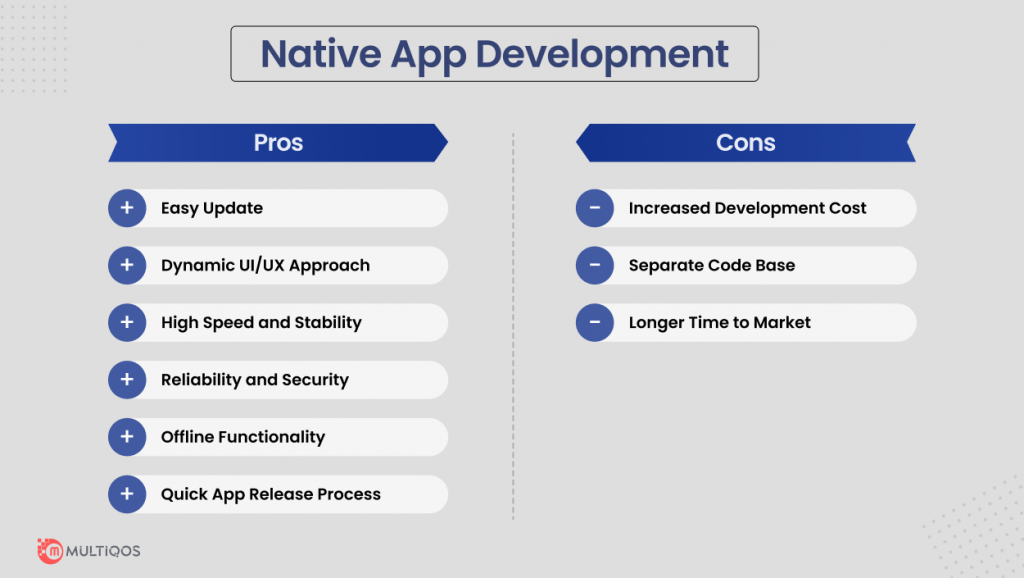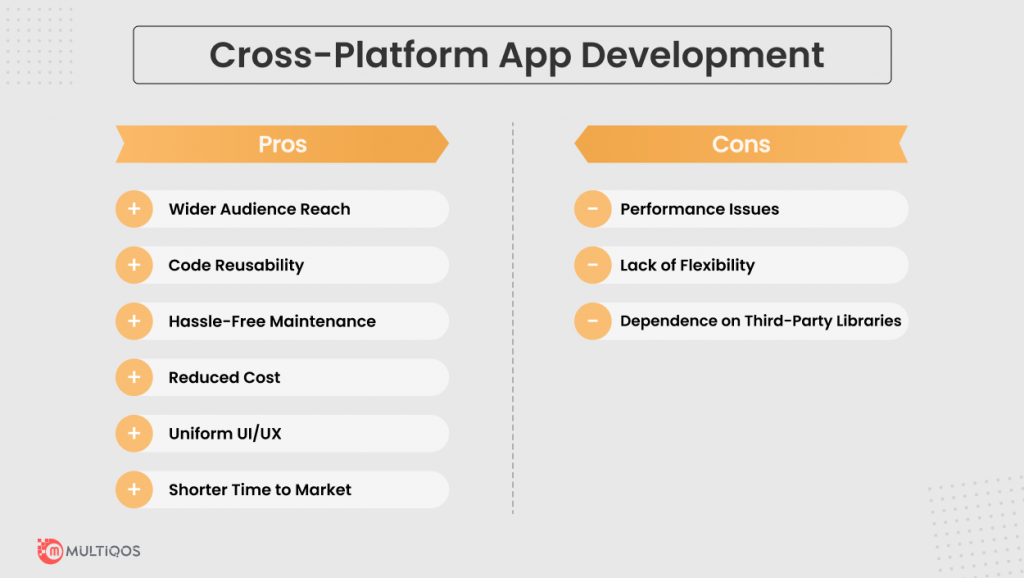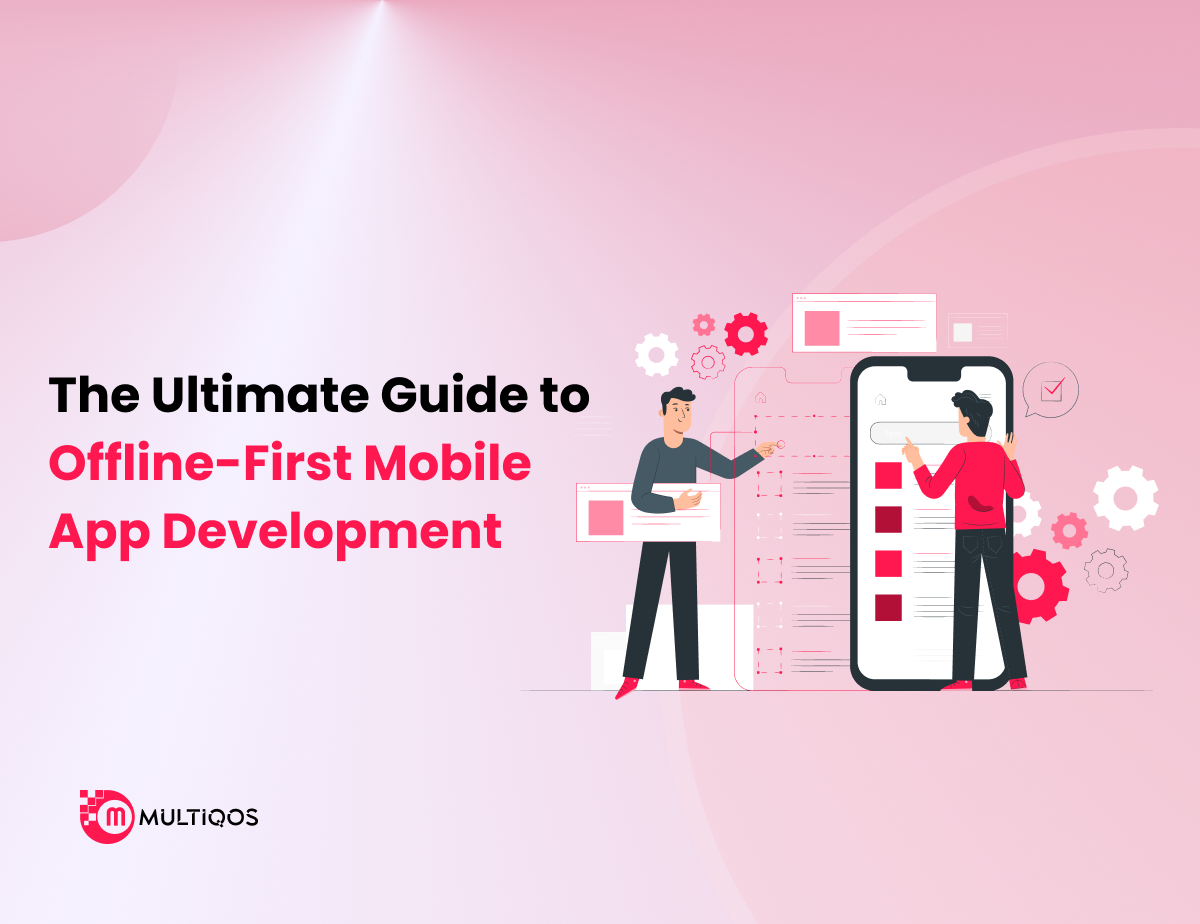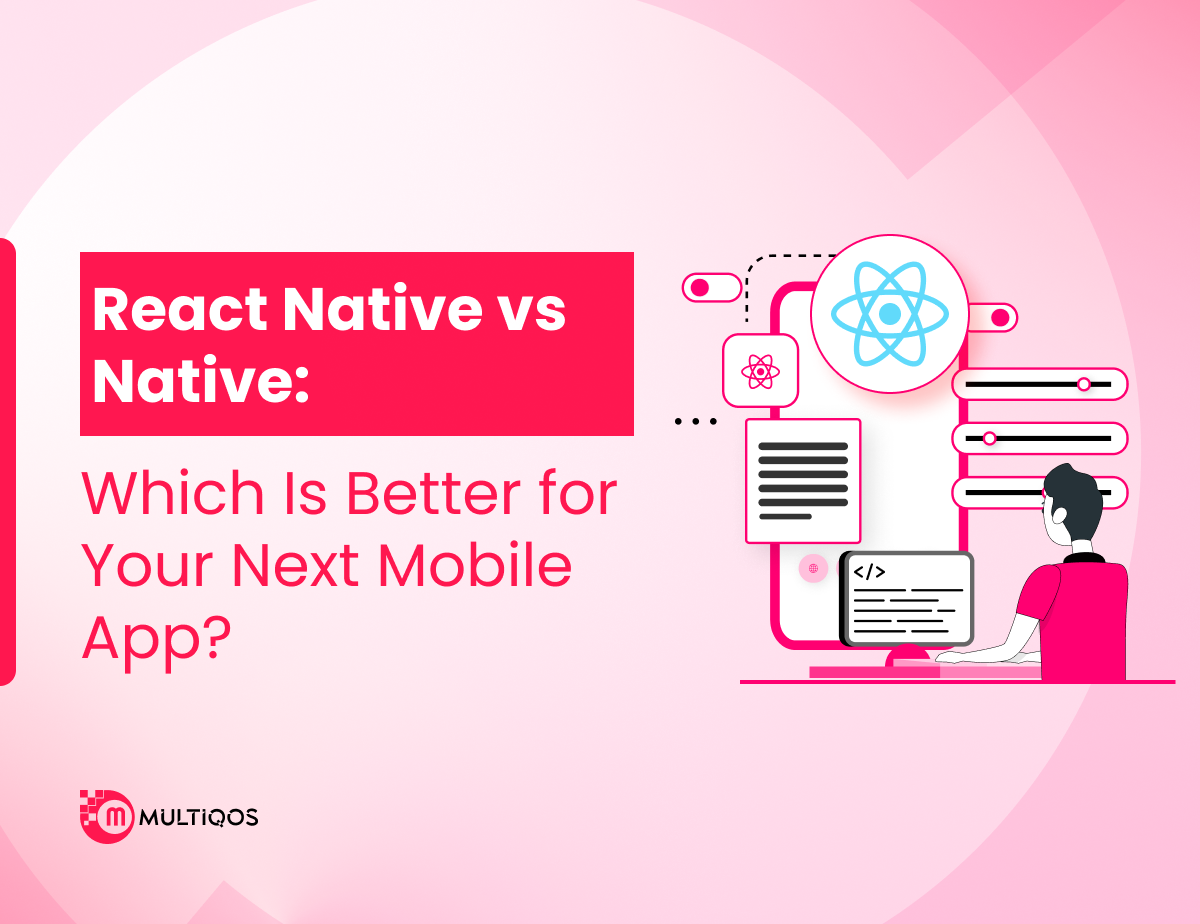Native vs. Cross-Platform App Development – Pros & Cons
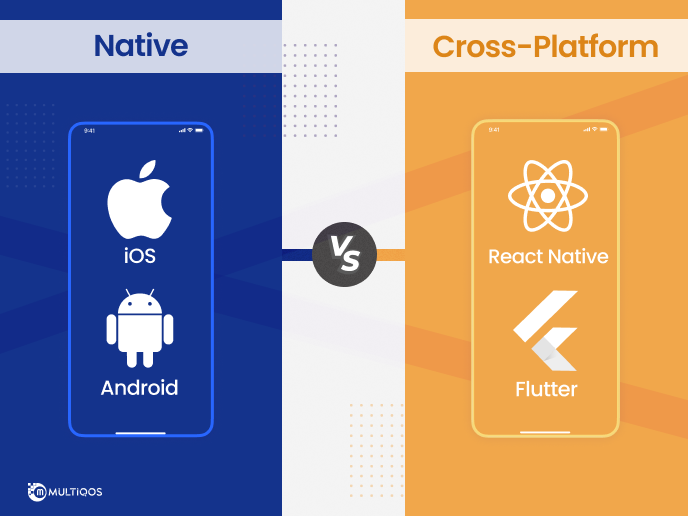
Introduction
Engineers are now able to deliver dependable mobile solutions that have a performance that is consistent across all mobile platforms as a direct result of the rapid growth of software technology. The most popular option for developing a native application in the past five to six years was to use programming languages such as Java and Objective-C. However, the current market provides cross-platform technologies that enable mobile app development company to obtain an experience comparable to that of a native application.
Before developing a software solution to address issues that arise in a company’s operations, it is essential to choose between developing apps that run on native platforms and those that run across many platforms. Businesses have the opportunity to increase user engagement, performance, and costs by tailoring the route to the particulars of each project.
Mobile App Development Stats and Facts
According to projections, the income generated by mobile apps will surpass $935 billion by the year 2023. Businesses all over the globe are rapidly building customized mobile apps to serve their consumers better, improve their operations, increase their productivity, and automate their processes. Despite this, as the owner of a firm and mobile app developers, you could have difficulty selecting whether to pursue both or not among cross-platform vs. native mobile development. As a result, we will conduct an in-depth analysis of the benefits and downsides of each of these variants. But before we get into it, let’s examine some fascinating facts.
Native vs. Cross-Platform App Development: Difference?
A mobile app designed exclusively for a mobile platform is referred to as a native mobile app. The whole body of code is generated by hand by the team of mobile application development professionals making use of the programming language that is supported by the platform.
On the other hand, an HTML5 and JavaScript-based application framework make up a cross-platform mobile app. This framework is automatically constructed. There is a possibility that native apps may add support for other features like the camera, location, accelerometer, and so on.
Understanding Native App Development
Advantages of Native App Development
- Native applications have a distinct performance advantage: When designing a mobile app, it is better to do it with native or cross-platform development. This allows the app to take full advantage of the hardware and software capabilities of the platform that it is intended for. Because of this, the program runs smoothly. Native apps are renowned for their lightning-fast reaction times because of the tailor-made nature of these programs and the compilation process that uses the platform’s native programming language and application programming interfaces (APIs). As a result, the program performs its duties more efficiently.
- Makes it easier to add new features: As a result of the app’s design, you will not be able to build cutting-edge new features and services for a web app as easily as you would for a native app. If the functionality offered is insufficient for your requirements, you may be able to exercise greater creativity with a native app by creating your APIs.
- Fewer bugs during development: It takes far more effort to maintain two applications working off the same codebase than to operate each application separately. Native app development decreases the number of possible failure points by doing away with the necessity for a cross-platform solution such as Xamarin or Cordova. Native app developers may now begin the process of designing applications that take advantage of the most recent features by using updated software development kits (SDK). Because of this foresight, users of native apps may immediately begin taking advantage of the most recent platform features upon downloading the most recent version of the operating system.
- Can also function offline: Native programs have an advantage over their web-based counterparts since they continue to operate even when unplugged from the internet. You shouldn’t worry if you are located beyond the coverage area of a network or if you are having trouble connecting to it.
- Increased security and reliability: Using a native mobile app does not need to be concerned about anything. There will be significant performance gaps in web apps due to the non-standard nature of web app technologies such as Javascript, HTML5, and CSS. Native programs, on the other hand, provide higher levels of functionality and safety. Developing native mobile apps is an excellent choice that may be made to provide customers with a trustworthy data security solution.
Disadvantages of Native App Development
- Constant Updates Required: Upgrades are often made available to previously released versions of native software by their respective creators for several reasons. The majority of the time, it’s to make up for some kind of shortcoming or fault. As a direct consequence, the App Store is subject to mandatory updates to guarantee that users have access to the most recent versions of the programs. The problem occurs, however, if the user is either uninformed of the existence of such updates or decides not to make use of them in order to save storage space.
- Demands More Support: Building native applications requires constructing and maintaining several code bases, which is a necessary step in the process. It is necessary to go through the procedure of upgrading and publishing modifications on two separate computer systems. This indicates that more support and maintenance will be required for your program.
- Expensive: The overall expenses associated with the production and upkeep of a native app are much higher than those of a hybrid app. This is due to the fact that many versions of the same application need to be released. The mobile application requires a large continuing financial commitment. Despite this, investing in native apps ultimately results in cost savings.
- More time-consuming: The need to build native apps for various platforms necessitates investing time between Native vs. cross-platform app development. It’s possible that developing a native app will take much more time than developing a hybrid app. When developing a native application, programmers need to put in more work to adapt their code to the requirements of various operating systems.
Top Examples of Native Apps
People from all around the world communicate with one another using WhatsApp, which is popular messaging software. It was developed as a native application that can run on iOS and Android smartphones. This platform was at the very top of the app popularity rankings in the third quarter of 2020, when an astounding 140 million individuals all across the globe downloaded it. This native app is a good example of a practical alternative to the conventional ways of communication that are often used inside a workplace.
- Spotify
An example of a popular native application, Spotify, is a music streaming service that promotes itself as one of the essential applications for music lovers to have on their mobile devices. To add more clarification, it is a centralized digital music service that gives customers access to millions of songs and podcasts from a wide variety of record labels and media companies located all over the globe. In addition, Spotify is an excellent example of a cloud-native application that has succeeded greatly. Spotify has been able to greatly expand its capacity to satisfy the demands of its users as a result of the company’s migration of its workloads to Google Cloud.
- Waze
Waze is a GPS navigation program that has received recognition all around the world. This is a functioning example of a native app that can be used on mobile devices with GPS capabilities. For example, the app assists its users in getting about by giving them specific directions, information about their routes, and even predicted travel times based on the experiences of other app users. Waze is also completely free, so using it is a win in every sense.
Also Read: AWS Vs Azure Vs GCP – The Cloud Platform of Your Choice?
Understanding Cross-Platform App Development
Advantages of Cross-Platform App Development
- Capacity to Reuse Existing Code: The ability to reuse code is one of the many advantages offered by mobile apps’ Native vs. cross-platform development, which is one of the primary reasons why it has captured the attention of so many businesses owners. Developers don’t need to generate two separate sets of code for mobile applications to be compatible with iOS and Android. Developers can target both platforms with a single piece of code using native vs. cross-platform app development, saving them time and effort.
- Less development time: The whole process of developing mobile applications is sped up by the cross-platform strategy since it enables the reuse of existing code and eliminates the need to begin each new project from scratch. When using this approach, developers often complete the project more quickly and achieve faster delivery times than they would be able to when using a native solution.
- Increased Visibility within the Market: The use of a native app has the drawback of making content unavailable on platforms other than the one on which the app was originally designed to run. Your software will only function properly on iOS or Android operating systems. Cross-platform mobile development, on the other hand, makes it possible for app owners to distribute the same program across many platforms, therefore growing both the number of users and the potential size of the market.
- Wider reach among the audience: Cross-platform app development is the way to go if you want to increase your user base since it enables you to design an application compatible with iOS and Android. A straightforward method to bring your product to more people’s attention is to publicize it in many marketplaces, such as the App Store and the Google Play Store.
- Increase in Productivity: One of the most significant advantages of developing for many platforms is the reduction in expenses associated with development. Because of limited resources, many businesses, especially startups, are hesitant to invest significantly in creating mobile applications. Developing mobile apps compatible with iOS and Android using a single codebase is the primary benefit of cross-platform mobile app development, making it the superior choice in this scenario.
Disadvantages of Cross-Platform App Development
- Insufficient effectiveness in a few applications: Performance issues may be experienced by applications that need a significant amount of data input.
- Might be time-consuming: It might take a considerable amount of time for an app to get authorized in both the App Store and the Google Play store when it supports several platforms. In addition, before being able to be downloaded and installed, each update must first get its unique authorization.
- Native features of the device: It should be no surprise that software designed to run on several platforms won’t have access to each platform’s features. However, this need for extensive connectivity may not always be necessary, depending on your app’s tasks.
- Not easy to develop: The developer will need to spend a significant amount of time and financial resources in order to rebuild a native iOS or Android app using React Native.
- There is less room for flexibility: When developing a new feature that should work on a range of devices and get support from those devices, cross-platform solutions are not likely to provide the same flexibility as native mobile applications.
Top Examples of Cross-Platform Apps
- Adobe Reader
There is an overwhelming selection of PDF readers that may be downloaded. In addition, a PDF reader tailored to every operating system is readily accessible for download. On the other hand, Adobe Reader is miles ahead of the competition in terms of its quality and the ease with which it may be used. Because it is the de facto standard for PDFs and has clients for practically every operating system, it is unquestionably the leader in its field.
- VLC
VLC is one of the most adaptable and user-friendly media players available today; it is quite unlikely that you will discover one superior to it. VLC is possible on various operating systems, including but not limited to Linux, Mac OS X, Windows, *BSD, UNIX, Solaris, and many more. It supports almost any media format imaginable and can do so over a network. It takes up little space, may be obtained without cost, and is constructed using code that is publicly accessible to the public.
- Chrome
Not since the development of the World Wide Web has the use of a browser met this level of enthusiasm. Not only was Google Chrome successful in increasing brand recognition, but it also made competitors anxious about their position in the market. Google Chrome is a web browser that is quick, dependable, adaptable, and available on several platforms. According to certain tests, the Linux version of Google Chrome is the fastest rendering browser available on any platform (not called IE).
How to Choose Between Native Development and Cross-Platform Development?
If you want to know which app is best for your project between Native vs. cross-platform mobile development. In that case, you need to look at your business from every perspective: who you’re trying to reach, how much money you have, how much time you have, what features you need in the software, and how well the app will connect with the user’s device. To know which app is best for your project, you need to look at your company from every viewpoint.
Before opting for one development plan over another, several considerations need to be made. Consider the goals your organization wants to achieve, the features that absolutely must be included, and the languages and technologies your workforce is already acquainted with.
Our Experience with Native vs. Cross-Platform Apps
It is vital that you allocate resources to a mobile app development plan that is targeted to your company’s unique demands and objectives and those of your target market, regardless of what sector of the economy you operate in.
Whether you should design native apps, hybrid applications, or cross-platform applications will be determined by the needs of your firm. The first thing that businesses need to do in order to begin the process of developing an innovative and powerful app is to determine what it is that they require. Once they have a solid understanding of what they require, they can start looking into development platforms that are best suited to meet those requirements.
Native, hybrid and cross-platform app development have their benefits and drawbacks; picking one over the others involves taking a step back and considering the bigger picture and what you want to achieve with the app. In the long run, it will assist you in reaching the pinnacle of success by providing you with the ability to develop a mobile app that is cutting edge and captivating.
Summing Up
The ever-increasing number of apps currently available for download in both the Google Play Store and the Apple App Store may make it appear to be an insurmountable obstacle for businesses to find the secret formula for a successful app launch that will differentiate them from their competitors. Without a solid understanding of the primary features, pros, and disadvantages of mobile development native vs. cross-platform, and the functioning behind each development style, it may be difficult to decide which development method is best for your organization. It will give you an edge over the competition.
This decision may be difficult because it may be difficult to decide which method of development is best for your organization and will give you an edge over the competition. When deciding on a development plan for a new app, it is crucial to consider several factors, including the software’s intended purpose, the resources that are already available, and the consumers who will be using the app.
Let’s Create Big Stories Together
Mobile is in our nerves. We don’t just build apps, we create brand. Choosing us will be your best decision.
FAQs on Native vs. Cross-Platform App
Native app development is a method of developing apps written in code using the native SDKs available on your device. Cross-platform app development is a different way of developing an app, which means that the code will be extended to work on multiple platforms such as iOS, Android, and Windows 10/8.1. This type of development can be more complex and time-consuming, but it offers many benefits, such as increased flexibility and freedom when choosing applications and devices.
React Native is a cross-platform development platform that allows you to build fast, responsive apps with little coding. It’s designed specifically for mobile devices and uses JavaScript, which can be roughly interpreted as an object-oriented programming language. Because React Native apps are built on top of Democratized JavaScript libraries, they run quickly and smoothly on various mobile platforms.
Hybrid applications work on several platforms, whereas native apps are developed specifically for one.
When it comes to creating native applications, one of the greatest options is React Native.
Using a single set of codes, developers may create mobile applications that can run on several platforms.
The native and cross-platform difference lies in their design to work on many operating systems.
It is important to consider your company’s specific needs. Native applications are the way to go if you have a big budget and want high-performance software. Cross-platform software is viable if you need to maximize resources while keeping costs down.
Compared to native apps, hybrid applications need less upkeep and guarantee a quick and trouble-free development lifecycle.
Get In Touch

